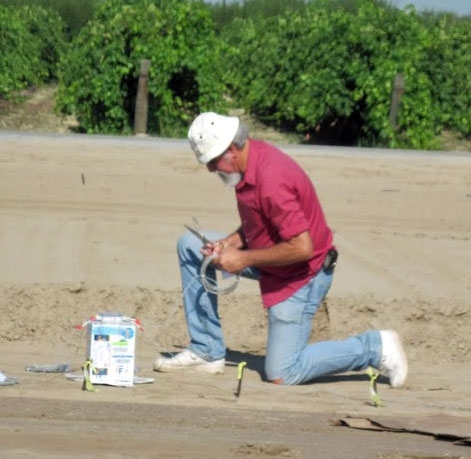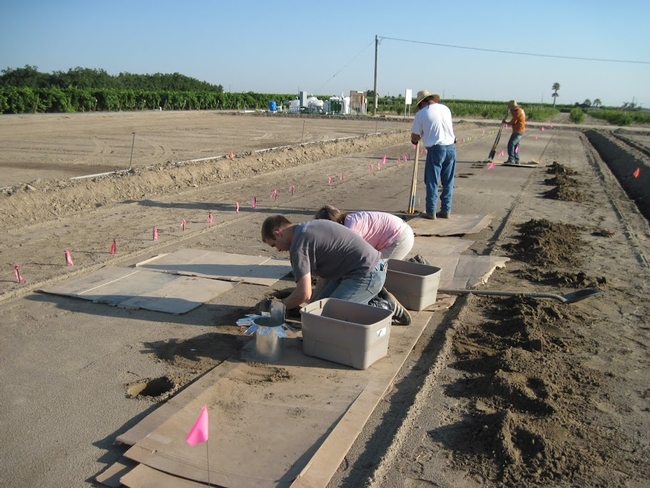Composted green waste supports soil solarization

Soil solarization involves covering a field with clear plastic mulch to trap solar radiation in moist soil. During the hot summer months, the soil temperature can rise to levels that can kill soilborne diseases, nematodes and weed seeds. This system has proven especially useful to small-scale, limited-resource and organic growers who produce specialty crops in warm climates.
Last summer’s research, coordinated by Kearney-based integrated pest management plant pathologist Jim Stapleton, was part of a bi-national, multi-institution collaborative effort led by UC Davis biological and agricultural engineering professor Jean VanderGheynst. The research was funded with a grant from the Binational Agricultural Research and Development Fund, which supports agricultural research in Israel and the U.S. that is mutually beneficial.
Environmental science students at Fresno Pacific University, under the supervision of professor and project collaborator Ruth Dahlquist, were enlisted to carry out some of the research on micro plots at Kearney. They subjected black mustard seed to a solarization regimen that mimicked typical farming conditions to study the effects of the treatment on the seeds and the physical and biological properties of the soil.

Two of the Fresno Pacific students were honored by the California Weed Science Society at its annual meeting in January for posters they developed based on their research findings. DeeAnn Kroeker earned first place in the student poster contest for her analysis of the effects of volatiles produced during solarization of compost-amended soil on black mustard seed inactivation. Kate Hernandez was awarded third place for her poster about the field effects of solarization and compost treatment on inactivation of black mustard seed.
The research at Kearney continues during the summer of 2012.
The Israeli counterpart of the solarization research is focused on the impact of a different type of compost and solarization on fungal plant pathogens in the soil.

Left to right, Jim Stapleton, Fresno Pacific's Ruth Dahlquist and students Stacy Betts, Katie Hernandez and DeeAnn Kroeker.